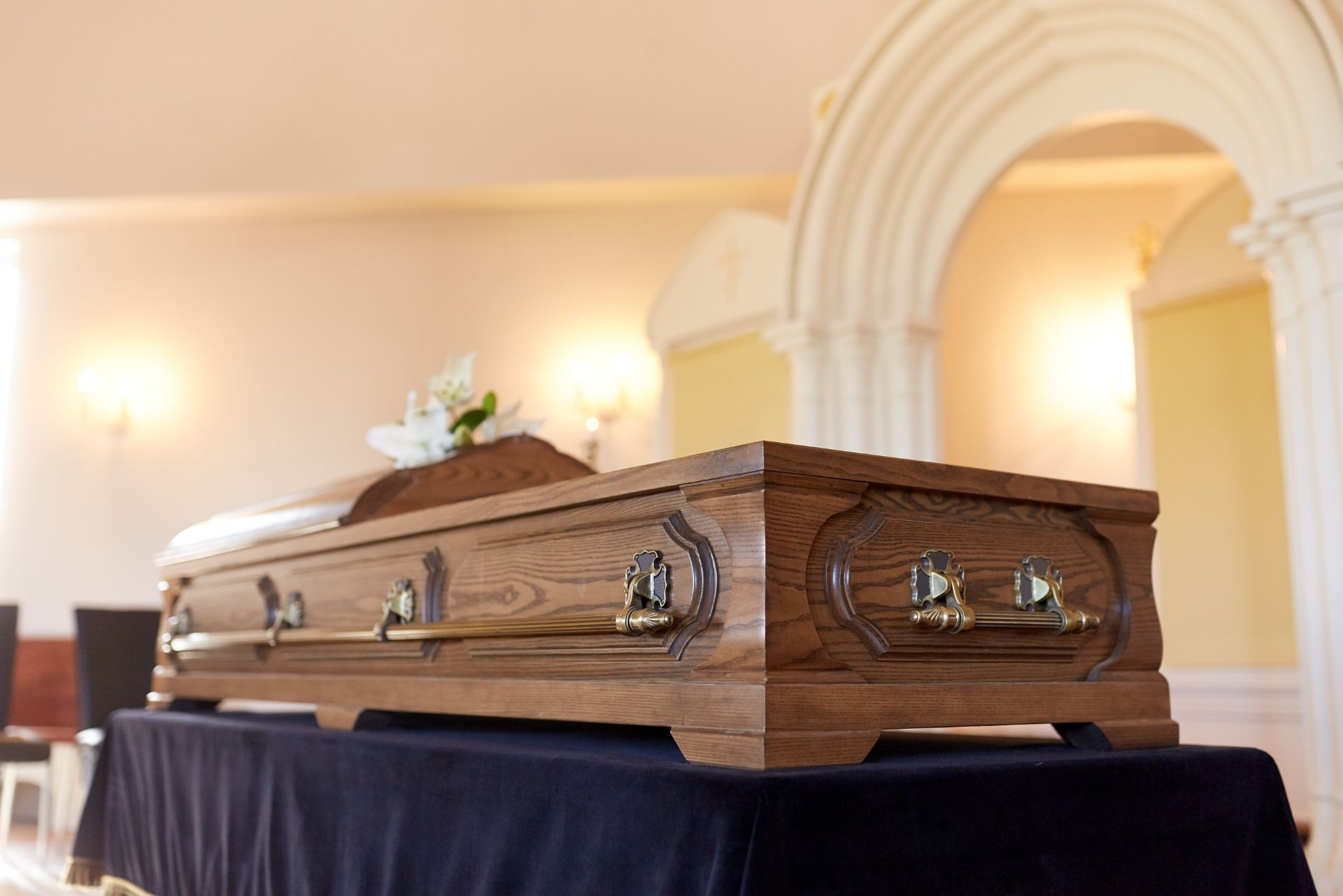Top 3 Recommended Policies

The funeral industry in New York is a significant and complex sector, projected to generate $1.3 billion in revenue by 2025, supported by nearly 2,000 establishments and over 5,000 employees. This thriving market, however, comes with unique challenges and risks that make insurance an essential consideration for funeral home operators. Understanding the nuances of funeral home insurance in New York is crucial not only for protecting business assets but also for ensuring compliance with state regulations and maintaining trust with families during difficult times. This article breaks down everything you need to know about funeral home insurance in New York, from industry trends to specific coverage types and risk management strategies. For more detailed industry insights, visit IBISWorld’s New York funeral homes report.
Understanding the Funeral Industry Landscape in New York
New York’s funeral home industry is a dynamic sector characterized by a mix of traditional family-owned businesses and modern enterprises adapting to changing consumer preferences. Approximately 75% of funeral homes across the United States are family-owned, a statistic that holds true in New York as well, reflecting the personalized nature of funeral services and the importance of legacy in this industry.
Despite perceptions of being recession-proof, the industry faces pressures from evolving regulations, rising operational costs, and the need to innovate in service delivery. Real estate experts like Aaron Warkov from Cushman & Wakefield have noted that funeral homes often represent prime opportunities for redevelopment and mixed-use projects, signaling shifts in how these properties may be utilized in the future. This evolving landscape makes insurance coverage that can adapt to these changes especially vital.
With the average cost of a funeral in the U.S. around $7,500 as of 2022, funeral homes must carefully manage their financial risks while providing compassionate services. For a broader perspective on funeral industry economics, Marketdata Enterprises offers comprehensive industry reports that highlight trends including digital marketing growth and consumer spending patterns.
Moreover, the rise of eco-friendly burial options has started to reshape consumer choices within the industry. Green burials, which emphasize environmentally sustainable practices, are gaining traction among a growing demographic that prioritizes ecological responsibility. This trend has led many funeral homes in New York to incorporate biodegradable caskets and natural burial sites, catering to the desires of families who wish to honor their loved ones while minimizing their environmental footprint.
Additionally, the integration of technology in the funeral industry is revolutionizing how services are delivered. Many funeral homes are now offering virtual memorial services and live-streaming options, allowing families and friends who cannot attend in person to participate in the grieving process. This shift not only enhances accessibility but also reflects a broader societal trend towards digital engagement, making it crucial for funeral homes to stay ahead of technological advancements to meet the needs of their clients effectively.

Key Insurance Coverages for Funeral Homes
Funeral homes face a variety of risks that require specialized insurance policies. The nature of their operations—handling human remains, operating specialized equipment, and providing around-the-clock services—means that general business insurance is often insufficient. Below are the primary types of insurance coverage funeral homes in New York should consider:
1. General Liability Insurance
This coverage protects against claims of bodily injury or property damage that may occur on funeral home premises. Given the sensitive nature of funeral services and the frequent presence of grieving families, this insurance is fundamental to managing risks related to slips, falls, or accidental damage during events. Furthermore, it can also cover legal fees associated with defending against such claims, which can be a significant financial burden for small businesses.
2. Professional Liability Insurance
Also known as errors and omissions insurance, this protects funeral directors and staff against claims of negligence, errors, or failure to perform professional duties. Considering the high emotional stakes and legal responsibilities involved in funeral arrangements, this insurance is crucial to safeguard against costly lawsuits. It also serves as a reassurance to families that they are entrusting their loved ones to professionals who are adequately protected and accountable for their services.
3. Property Insurance
Funeral homes often house expensive equipment, embalming chemicals, and vehicles. Property insurance covers damage or loss due to fire, theft, vandalism, or natural disasters, ensuring business continuity after unforeseen events. In addition to physical assets, this coverage can also extend to loss of income during periods when the funeral home is unable to operate due to property damage, allowing for financial stability even in challenging times.
4. Workers’ Compensation Insurance
Given that funeral home employees may work irregular hours and handle physically demanding tasks, workers’ compensation insurance is mandatory in New York. It provides wage replacement and medical benefits to employees injured on the job. This coverage not only protects the employees but also fosters a safer work environment, as it encourages employers to implement safety protocols and training to minimize workplace injuries.
5. Commercial Auto Insurance
Many funeral homes operate hearses and other specialized vehicles. Commercial auto insurance covers these vehicles for liability and physical damage, protecting the business from financial losses related to accidents or theft. Additionally, this insurance can also cover the unique needs of transporting human remains, ensuring compliance with state regulations and providing peace of mind to families during their time of loss.
6. Cyber Liability Insurance
With the funeral industry increasingly investing in digital marketing and online services—reflecting a 5% annual growth rate in digital marketing expenditure nationally—cyber liability insurance is becoming more relevant. It protects against data breaches and cyberattacks that could compromise sensitive client information. As funeral homes begin to adopt more technology-driven solutions, such as online memorials and digital payment systems, the importance of safeguarding client data cannot be overstated. This insurance not only covers the costs associated with data recovery and legal fees but also helps maintain the trust of clients who expect their personal information to be handled with the utmost confidentiality and security.
Challenges and Risks Unique to New York Funeral Homes
Operating a funeral home in New York comes with distinctive challenges that influence insurance needs. The state’s dense urban environment, regulatory complexity, and real estate pressures all contribute to a unique risk profile.
One notable challenge is the requirement for funeral homes to be available 24/7, as noted by business adviser David Nixon: “You’re basically on call 24 hours a day. People don’t die on schedule.” This around-the-clock demand increases the likelihood of workplace accidents and operational disruptions, underscoring the importance of comprehensive workers’ compensation and liability coverage.
Additionally, New York’s real estate market exerts pressure on funeral home properties. According to Aaron Warkov, funeral homes are often considered valuable sites for redevelopment or mixed-use projects. This dynamic means funeral homes must be prepared for potential property valuation changes and zoning challenges, making property insurance and legal consultation critical components of risk management.
Furthermore, the New York State Department of Financial Services recently highlighted challenges in the long-term care insurance market, including premium increases and historical mispricing. While this report primarily focuses on long-term care, it signals the regulatory and financial complexities that can indirectly affect funeral homes, especially those offering pre-need insurance or burial insurance products. For more details, see the New York State Department of Financial Services report.
Another significant challenge faced by funeral homes in New York is the emotional toll of working in such a sensitive industry. Funeral directors and staff must navigate the grief of families while maintaining professionalism and composure. This emotional labor can lead to burnout and mental health issues, making access to mental health resources and employee support programs essential. As noted by industry experts, creating a supportive work environment can help mitigate these risks and ensure that staff members are equipped to handle the pressures of their roles.
Moreover, the diverse cultural landscape of New York adds another layer of complexity to funeral services. With a rich tapestry of ethnicities and traditions, funeral homes must be adept at accommodating various customs and practices. This includes understanding different rituals, languages, and preferences, which can require additional training and resources. As a result, funeral homes must invest in cultural competency training for their staff to ensure they provide respectful and personalized services that honor the unique backgrounds of the families they serve.
Insurance Cost Factors and Financial Considerations
The cost of funeral home insurance in New York varies widely based on several factors including the size of the business, number of employees, types of services offered, and claims history. Given that the average funeral costs around $7,500 nationally, funeral homes must balance operational expenses with adequate insurance coverage to avoid financial strain.
Insurance premiums are influenced by the scope of coverage chosen. For example, adding cyber liability or commercial auto insurance will increase costs but provide essential protection. Family-owned funeral homes, which make up the majority of the industry, often face tighter budgets and may benefit from working with insurance brokers who specialize in funeral home risks to tailor policies effectively.
Moreover, the industry’s growth in digital marketing expenditure—growing at about 5% annually—suggests an increasing reliance on technology and online platforms. This trend makes cyber insurance a growing necessity despite its additional cost. As funeral homes expand their online presence, they must also consider the potential risks associated with data breaches and online fraud, which can lead to significant financial losses and damage to reputation.
In addition to these factors, geographic location plays a crucial role in determining insurance costs. For instance, funeral homes situated in urban areas may face higher premiums due to increased competition and higher operational costs, while those in rural settings might benefit from lower rates. Additionally, local regulations and state-specific requirements can impact insurance needs, as some regions may mandate certain types of coverage that others do not. Understanding these nuances is vital for funeral home owners as they navigate the complexities of insurance in a competitive marketplace.
Furthermore, the evolving landscape of consumer preferences is also influencing insurance considerations. With families increasingly seeking personalized and unique funeral experiences, funeral homes may need to invest in specialized services that could affect their insurance needs. For instance, offering eco-friendly burial options or customized memorial services may require additional liability coverage. As the industry adapts to these changing demands, staying informed about the latest trends and insurance products will be essential for maintaining both financial stability and customer satisfaction.

Emerging Trends and the Future of Funeral Home Insurance
The funeral industry is evolving rapidly, and insurance products are adapting to meet new demands. One recent development is the issuance of a $600 million Medium-Term Note (MTN) offering by New York Life in October 2024, marking a significant financial milestone in burial insurance funding. This move reflects growing investor confidence in the sector and may influence insurance product offerings and pricing in the near future. More on this development can be found at Stratistics MRC’s burial insurance market report.
Additionally, as funeral homes explore redevelopment opportunities and mixed-use projects, insurance policies will need to accommodate hybrid business models. This could include coverage for property redevelopment risks or liability related to new commercial activities on-site. As funeral homes diversify their services, such as incorporating event spaces or wellness centers, the complexity of their insurance needs will increase, necessitating specialized policies that address the unique risks associated with these new ventures.
Technology integration will also continue to shape insurance needs. From online memorial services to digital payment systems, funeral homes must protect against cyber threats while maintaining compliance with data privacy regulations. The rise of telecommuting and virtual services has prompted many funeral homes to enhance their digital infrastructure, leading to a greater need for cyber liability insurance. Furthermore, as families increasingly seek personalized and innovative memorial experiences, funeral homes may need coverage for new service offerings, such as virtual reality tributes or eco-friendly burial options, which could present their own set of risks and liabilities.
Moreover, the demographic shifts in society are influencing the types of insurance products that funeral homes require. As millennials and Gen Z begin to take on more responsibilities related to end-of-life planning, there is a growing demand for transparent, affordable, and customizable insurance solutions. This generational shift may lead to the development of more user-friendly platforms that allow individuals to manage their funeral arrangements and insurance policies online, thus requiring insurers to adapt their products to cater to a more tech-savvy clientele. The evolving consumer expectations will undoubtedly challenge traditional insurance models, pushing providers to innovate and enhance their offerings to remain competitive in this changing landscape.
Tips for Selecting the Right Funeral Home Insurance in New York
Choosing the right insurance policy requires a strategic approach tailored to the unique needs of funeral homes. Here are some practical tips:
- Assess Your Risks Thoroughly: Conduct a comprehensive risk assessment covering property, liability, professional duties, and employee safety.
- Work with Specialized Brokers: Partner with insurance agents who understand the funeral industry and New York’s regulatory environment.
- Review Coverage Annually: Update policies regularly to reflect changes in business operations, such as adding new services or vehicles.
- Consider Bundled Policies: Bundling multiple coverages can often reduce premiums and simplify claims management.
- Stay Informed on Regulatory Changes: Keep abreast of New York State Department of Financial Services updates that may impact insurance requirements.
By taking these steps, funeral home operators can ensure they have robust protection that supports both business resilience and compassionate service delivery.
Conclusion
Funeral home insurance in New York is a critical component of managing the many risks inherent in this sensitive and essential industry. With a projected $1.3 billion revenue market and thousands of establishments, the sector demands tailored insurance solutions that address unique operational, legal, and financial challenges. From general liability and professional liability to cyber and property insurance, funeral homes must carefully evaluate their coverage needs in light of evolving industry trends and regulatory landscapes.
Staying informed about market developments, such as New York Life’s recent $600 million MTN offering and state regulatory reports, helps funeral home operators anticipate changes and adapt their insurance strategies accordingly. Ultimately, comprehensive and well-structured insurance coverage not only protects the business but also ensures that funeral homes can continue to provide dignified and reliable services to families during their most difficult moments.
Contact Us
Phone
Location
